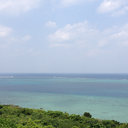Rehabilitation for a Patient with Hemiplegia, Ataxia, and Cognitive Dysfunction Caused by Pontine Hemorrhage.
Anahtar kelimeler
Öz
Patients with pontine hemorrhage usually experience severe disturbances of consciousness, pupillary abnormalities, quadriparesis, and respiratory failure. However, little is known regarding cognitive dysfunction in patients with pontine hemorrhage. We report the case of a rehabilitation patient presenting with hemiplegia, ataxia, and cognitive dysfunction caused by a pontine hemorrhage. A 55-year-old, right-handed male suffered sudden onset of vertigo, dysarthria, and hemiplegia on the right side. He was diagnosed with brain stem hemorrhage, and conservative treatment was administered. The vertigo improved, but dysarthria, ataxia, hemiplegia, and gait disorder persisted. He was disoriented with respect to time and place and showed a poor attention span, impaired executive function, and reduced volition. A computed tomography revealed hematomas across the pons on both sides, but no lesions were obvious in the cerebellum and cerebrum. Single-photon emission tomography showed decreased perfusion in the brain stem, bilateral basal ganglia, and frontal and parietal lobes in the left hemisphere. The patient received exercise therapy and cognitive rehabilitation, and home modifications were performed to allow him to continue living at home under the supervision of his family. His symptoms improved, along with enhanced regional cerebral blood flow to the frontal and temporal lobes. These findings suggest that the pontine hemorrhage caused diaschisis resulting in secondary reduction of activity in the cerebral hemisphere and the occurrence of cortical symptoms. Therefore, rehabilitation is necessary, along with active instructions for the family members of patients with severe neurological deficits.


